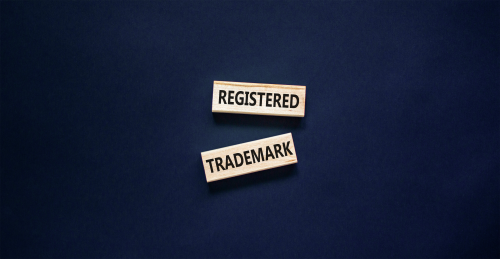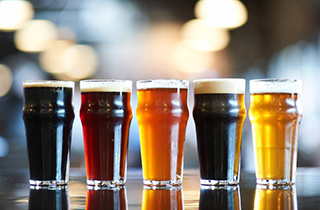Lawson's Finest Liquids, LLC filed a petition to cancel Sip Shine LLC's trademark registration for the mark SIP SHINE. The cancellation was based on the likelihood of confusion and dilution. Sip Shine LLC denied the allegations and raised defenses but did not pursue them during the trial. After reviewing the evidence presented by both parties, the Trademark Trial and Appeal Board (TTAB) granted the petition for cancellation on the grounds of likelihood of confusion. The issue of dilution was not addressed in the decision.
Background of the Trademark Dispute
The Petitioner's SIP OF SUNSHINE IPA beer, which was introduced in 2014, experienced both commercial success and critical acclaim. The beer was distributed in multiple states in the Northeast and Colorado. The Respondent was involved in the sale of moonshine and other whisky products under the SIP SHINE mark. The mark was created by the founder of the company, Kyle Search. The Respondent's SIP SHINE moonshine was available in 32 states and had been sold in plastic bottles and cans until recently. The Respondent promoted its product through various channels, including social media, sports events, and trade shows.
Although the two parties' marks coexisted without any reported instances of confusion for three years, the Petitioner sent a cease-and-desist letter to the Respondent in 2020. In light of these circumstances, the TTAB determined that the Petitioner was entitled to a statutory cause of action under Section 2(d) of the Lanham Act.
Analyzing Likelihood of Confusion
The TTAB considered several key issues in the case, starting with the issue of priority. The Petitioner demonstrated priority over the Respondent by showing that their trademark application was filed earlier. The TTAB analyzed the likelihood of confusion using the DuPont factors. They examined the similarities between the marks and services, as well as other relevant factors. During the analysis, the TTAB also assessed the strength of the Petitioner's mark. They concluded that the mark was inherently distinctive, which afforded it a wider scope of protection.
The Respondent presented evidence of third-party registrations that featured elements similar to their own mark, specifically "SIP," "SHINE," and/or "SUNSHINE" in the context of beer and alcoholic beverages. The TTAB discussed the relevance of these third-party registrations in evaluating the strength of a mark. They found that the evidence provided by the Respondent did not meet the criteria set for cases where such registrations had been deemed probative.
To support their findings, the TTAB also took notice of the standard definitions of "sip," "sunshine," and “India Pale Ale.” The TTAB determined that the Petitioner's mark was at least suggestive, rendering it inherently distinctive. They emphasized the importance of considering commercial strength in the likelihood of confusion analysis, noting that the burden fell on the Petitioner to prove the fame of their mark.
Factors for Assessing Mark Fame
The TTAB thoroughly examined the factors used to assess the fame of a mark in dispute between the Petitioner and Respondent. The parties held varying views on the commercial strength of the Petitioner's mark. The Petitioner asserted the fame of its mark based on revenue and sales volume, extensive advertising efforts, and unsolicited media coverage. However, the TTAB concluded that the evidence put forth by the Petitioner was not sufficiently compelling to support a claim of fame. It pointed out that certain evidence submitted by the Petitioner lacked admissibility due to improper signing or verification. The TTAB also determined that the Petitioner's advertising and marketing expenditures were relatively modest and limited in their geographic reach.
To establish the well-known status of its beer, the Petitioner cited numerous national publications that recognized it as one of the best IPA beers and craft beers in both the country and the world. Nevertheless, the TTAB found this evidence insufficient to establish the fame or commercial strength of the Petitioner's mark. It highlighted the absence of contextual information regarding sales and advertising figures, which was crucial in establishing fame. The TTAB noted that some of the cited publications were regional or local in nature, thereby diminishing their probative value.
Evaluation of Third-Party Testimony and its Significance
The TTAB determined that third-party testimony regarding the popularity of the Petitioner's brand lacked context and was too vague to be of significant value. Additionally, the TTAB found that the single enforcement matter presented by the Petitioner was not enough to strengthen the mark. In the fifth DuPont factor, the TTAB concluded that the Petitioner's mark was not considered famous, resulting in a neutral impact on their analysis.
The sixth DuPont factor, the TTAB considered the number and nature of similar marks being used with similar goods. Respondent argued that consumers were capable of distinguishing between similar marks, providing evidence of multiple third-party uses of SIP, SHINE, and SUNSHINE formative marks for beer and other alcoholic beverages.
The TTAB's Decision
The TTAB determined that the evidence presented by the Respondent was insufficient to weaken the commercial strength of the Petitioner's SIP OF SUNSHINE IPA mark. The TTAB went on to state that the Petitioner's mark was suggestive and therefore inherently strong, but lacked enough evidence to classify it as either commercially strong or weak. Consequently, the Petitioner's mark was entitled to the normal level of protection given to inherently distinctive marks.





